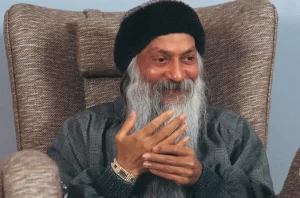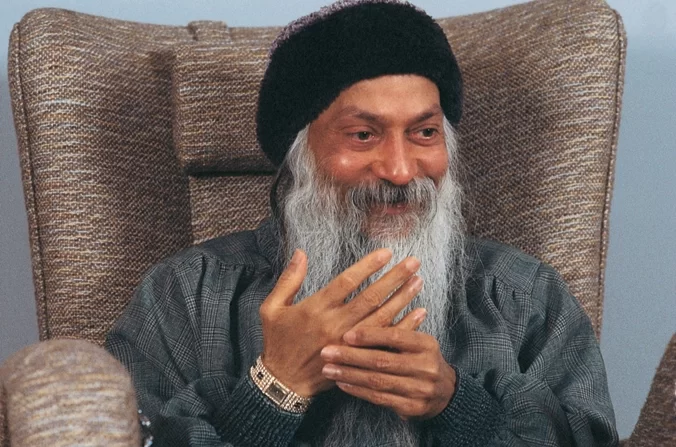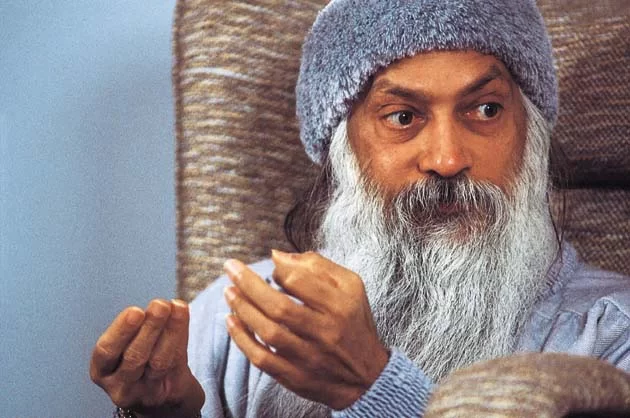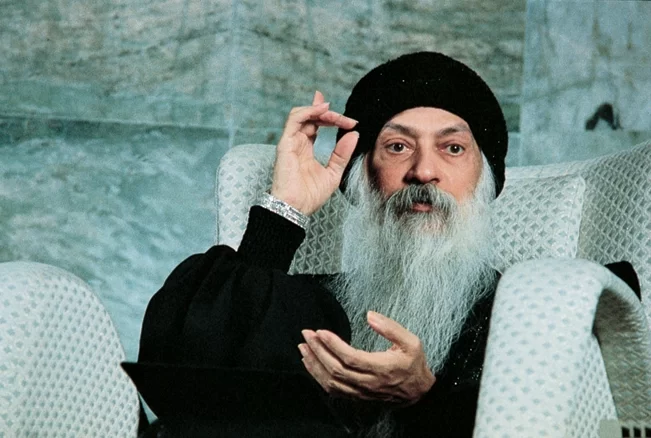International Youth Day
Celebrated on 12 August annually, International Youth Day is a recognition and awareness day integrated by the United Nations. It was established in 1999 to bring about attention to the circumstances, problems, and apprehensions of the youth around the world. The purpose is to initiate dialogue and provide practical support to improve the way of life of young adults. This day also promotes awareness about the World Programme of Action for Youth, as adopted by the General Assembly in 1995. This day helps in empowering the voice of today’s youth to initiate positive change.
Osho talks about youth, “The whole life, if you are miserly… even in death you will be the same. As you grow old you become more and more settled. Youth is the best time for inner transformation because youth is the most flexible time. Children are more flexible than young people, but they are not so understanding. They need a little experience. Youth is exactly the middle; you are no longer a child, no longer ignorant of life and its ways and not yet settled as an old man. You are in a state of transition, and the state of transition is the best time that you can jump out of the wheel of life and death. Youth is the most significant time to take any jump, because the jump needs courage, it needs energy, it needs risk, it needs daring.
Buddha says: YOU ARE STRONG, YOU ARE YOUNG. IT IS TIME TO ARISE.
To be youthful, to be young, to be fresh, is a great benediction. It is the time of rebellion. And if you miss your youth, it will be more and more difficult later on. Not that it is impossible — it can happen even when you are old — but it will take more arduous effort and things will not be so easy. It is just like climbing a mountain: when you are young it is easier, when you become old it becomes difficult. Breathing is hard, rising up is tiring, you perspire, you feel exhausted very soon, you will need more rest and the journey will look very long. When you are young you can run up; you can run up to the peak and each step will release more energy in you, because to be young is to be a reservoir of energy.
Many people come to me and ask why I am giving sannyas to young people. … Because of this: youth is the time for sannyas, because sannyas is the greatest rebellion; no other rebellion is so great. Don’t waste your youthfulness on other ordinary revolutions — political, social, economic. Don’t waste your life energy on those stupid games. Put your total energy, focus your total energy, on a single point — the spiritual revolution — because that is a radical change, and other changes can follow that change.”
RAM HAS COME TO LIVE WITH ME
AND I’M DRUNK WITH BOUNDLESS YOUTH.
There is one kind of youth that is dependent on the body. It carries a certain intoxication with it because youth is a novel thing. Old age, on the other hand, is like a river when the tide has gone out. Have you ever noticed a river just before monsoon, just before the rainy season? It looks dried up. It is always broken into several tiny streams and a great area of sandy bottom is always visible. It is as if the river itself has departed. There is no trace of the once-swollen river; there is only the rubbish it has deposited in its wake. It is as if some event had once taken place but there is no longer any trace of it and everything seems desolate. Have you ever seen a river flooded by the monsoon? Then there is a sort of mischief in its flow — it is as if it is drunk with wine, as if it is unable to walk straight. A river in flood is intoxicated; a river in flood is in its youth.
The youth of the body is exactly like this. When all the energies of the body are in flood a young man has no faith in God. He seems to have great faith in himself then — he does not worry about anything at all. He contains so much excess energy he is drunk with it. There is no question of bowing down to anyone, no question of surrendering to anybody. In youth a man is mad, blind, but his condition is pardonable, the situation is out of his control; he is in flood. The youth of the body comes and then it passes on. It is like the water from the mountains flowing through the riverbeds — the water comes and goes, it does not remain. The energy of the body is like this because the body is a momentary thing, it cannot last for long. It is a miracle the body remains young as long as it does. It is a mystery of mysteries how a rushing mountain flood can overflow so suddenly and then drop again so quickly. The flood of energy to the physical body will subside too. The light that illuminates the body will soon become darkness; the sweet music of the body will soon become a cacophony, and the beauty of the physical will surely vanish like a dream. The body you saw as a beautiful oasis will turn into a desert. It was all a transitory intoxication, all an illusion you took to be something else. This is why old age is filled with sadness. What was once, has disappeared.
The whole phenomenon of youth is like a dream you see during the night. You dream of becoming an emperor, of possessing huge palaces and great piles of gold coins, of ruling an empire that stretches to far off places — and suddenly you awaken and the dream vanishes. For a moment you hardly trust the sorrowful state you find yourself in — only a moment before you were a monarch with gold and palaces and hundreds of servants. But now all of that has disappeared. Old people always seems a bit surprised and puzzled; they cannot grasp what has happened. Where has all that energy gone? Where have those sturdy legs gone? Where has all that self-confidence gone? Where has that dynamic personality gone? Their life-energy is at a low ebb; they only see emptiness all around. Old people feel empty inside, hollow within. Only the skeleton of the body remains, and soon the time of departure will come. An old man is standing in the queue, waiting for death.
The youth of the body is transitory. The man who puts his trust in it is heading for disappointment because the death of the body is a certainty. You will be living in deception as long as you put your faith in the body. And you will be filled with sorrow when that trust is finally and positively broken. Youth is the kind of thing that not only torments you in youth but in old age as well. The presence of youth bothers you while you are young; its absence bothers you when you are old. And every now and then an old man’s mind will want to go back to the days of its youth. There is another kind of youth, the kind about which Kabir is speaking. It is the youthfulness of the soul. And there is yet another kind of youth, the youth of the supreme soul — and that is everlasting. There, the river never floods and the water never ebbs, it is always the same. There is no change; there is perpetuity. And the intoxication of perpetuity is altogether different. It is so different, it is of such a different kind, that no matter how you try to understand it in relation to the intoxication you know, you will be wrong.Not only will your idea be wrong, it will be quite the reverse of the real thing. It will not only be different, it will be exactly the opposite of whatever notion you have.
The intoxication of unconsciousness that is associated with the body is exactly like the intoxication caused by wine. This intoxication is caused by your unconsciousness; it is because you are not awake. The intoxication of the soul comes out of total awareness. Then you are filled with ecstasy because you are filled with awareness. The wine is the wine of awareness. If only such a wine could exist! There is one kind of intoxication, the intoxication of Buddha, of Mahavir, and there is another kind, the intoxication of Napoleon, of Alexander. This is another kind completely. The intoxication of Napoleon and Alexander will soon wear off, but the intoxication of Buddha and Mahavir will last forever. If the intoxication depends on the body, how can it last? The body itself does not last so very long. If the foundation crumbles, how can the building be saved?
RAM HAS COME TO LIVE WITH ME
AND I’M DRUNK WITH BOUNDLESS YOUTH.
When the individual soul meets the universal soul a kind of intoxication comes, it comes out of your great awareness. It is a kind of ecstasy that drowns you completely, and yet it is unable to drown you because the lamp of awareness is burning so brightly within you.
RAM HAS COME TO LIVE WITH ME
AND I’M DRUNK WITH BOUNDLESS YOUTH.
You will be able to understand Kabir if just a glimmer, if only the tiniest taste of this intoxication descends into your consciousness. At times you feel cool and collected, and you feel like this because no one can be so perturbed and ill at ease as not to have ever had a momentary glimpse of peace. You could not live unless you experienced such moments of peace. In moments of such peace your roots are nourished. Whenever you feel a little calm or when you feel a little elated, simply close your eyes and look within. In that moment of calmness a rhythm happens between you and existence, between you and God, albeit for a very short time. That is why you are calm. Whenever you are with God you become calm. And whenever you are calm, understand that God is near to you. You should remember this sutra; you should make this your touchstone; you should tie a string on your finger to remind you of it — whenever a tuning, a rhythm, happens between you and Him, you experience calmness and peace.
In America, a very rare thinker by the name of Henry Thoreau existed. When he was close to death an old aunt of his, a religious old lady who, though Thoreau was not religious because he never went to church or read the Bible, she came to him and asked compassionately, “Henry, have you made your peace with God?”
Lying on his death-bed, Thoreau opened his eyes and said, “I didn’t know we’d ever quarreled. What is there to make peace about?”
Henry Thoreau was not the type of man to quarrel with God. He never went to church because it wasn’t necessary. If there is no quarrel, then what is the point of going to court? He never made a mantra of God’s name; he never said a rosary. None of this was necessary because a continuous hymn to God was being sung within him. Henry Thoreau was an incomparable flower among men. He was always calm and unperturbed and never quarreled with God. So how could he pray? Whom would he worship? Whom would he adore? The quarrel between you and God disappears when you are at peace. Otherwise, you would be in conflict twenty-four hours a day. And the more you are in conflict, the more agitated you will become. How can a tree that quarrels with the earth remain calm and tranquil? Its roots are in the earth! Its roots are buried in the earth! Are you fighting with the earth? Are you fighting with your own roots? If you are, uneasiness will become your natural state. Then you will be disturbed; you will be perplexed and confused. If they fought with the earth the trees would go mad. The earth is the womb.
Just as the roots of the trees are in the earth, your roots are in God. Do you intend to fight with God? You fight with him twenty-four hours every day! God expects one thing from you and you want something else. The substance of all your prayers is, “Listen to my prayer. Fulfill my desires.” What you are doing is wrong; your praying is nothing but giving advice to God. You say, “My son is ill. Make him well.” God is the instigator of the illness — who are you to interfere in His work by asking Him to make your son well? In your prayers you say, “I am poor. Give me wealth.” God is the giver. God is more sensible than you, so to whom are you praying? If you listen carefully to people’s prayers, as I have done, you will discover that everyone says this to God — “Oh God, please do as I ask, but I am not prepared to listen to You.” You try so hard and in so many ways to fulfill your desires, and when your attempts fail you approach God with a prayer. But all your efforts are in aid of your own victory and you are busy trying to defeat God. How can you defeat Him? In your very effort to defeat Him you will be defeated. God is your foundation, He is your existence, He is your breath, your life.
No sooner does God come to your door than everything is suffused with calm. A new kind of intoxication pervades your body, your soul, your every heartbeat. The beauty of that intoxication is that it is a thousand times more intoxicating than wine, and yet there is no trace whatsoever of the unconsciousness caused by wine. This is its beauty. This is why the Sufis sing songs in praise of this wine. The songs of Omar Khayyam were translated by Western writers, but were not correctly understood. Edward Fitzgerald, who did an admirable rendering of Khayyam’s songs, was not a Sufi. He took the word `wine’ literally, for example. He also took the word `lover’ literally, and did the same with `wineshop’. He read the Rubaiyat and tried to understand it with the help of a dictionary. Omar Khayyam was a Sufi fakir, a Sufi saint. When he speaks of wine he is speaking of the wine about which Kabir is speaking:
AND I’M DRUNK WITH BOUNDLESS YOUTH.
Omar Khayyam is speaking of this too. The wineshop is the temple, the lover is the master, the guru, and the wine is none other than the wine of God. Fitzgerald made a great mistake when he translated the songs of Omar Khayyam literally, and many people in the West thought Khayyam was a drunkard and had written these songs in praise of wine. Many adaptations of the Rubaiyat were made from these translations of Fitzgerald’s and were published all over the world, and so the wineshop of Omar Khayyam became world-famous. This was a great blunder on Fitzgerald’s part. But this was bound to happen, because to understand an enlightened person it is necessary to be enlightened oneself. To understand a madman one must be mad, so if you wish to understand an enlightened man you will have to become enlightened yourself. The sign-language used by a dumb person can only be understood by another who is dumb. Fitzgerald did not realize this. If Omar Khayyam were to return to the world he would not be so displeased with anyone as he would be with Edward Fitzgerald. Fitzgerald made Khayyam’s name famous throughout the world, but he did it in a very wrong way.
RAM HAS COME TO LIVE WITH ME
AND I’M DRUNK WITH BOUNDLESS YOUTH.
Whenever you are a little quiet, a little calm, and you feel elated, don’t miss that moment. It means the greatest guest possible is close to you, is hovering somewhere about you. And that is the reason that all of a sudden you begin to experience that elation, that feeling of pleasantness. Close your eyes in that moment. Turn that moment into meditation. Generally you do the opposite; you sit down to meditate whenever you are miserable. But that is the time when there is a great distance between you and God — and that is also why you are miserable. How can you call Him when the distance is so great? How will you be able to recognize Him? People remember Him in their misery and forget Him when they are happy. In your moments of happiness He is nearest to you.
Happiness is not building a big house — it does not necessarily follow that building a big house will make you happy. Happiness is not winning a big prize in a lottery — there is no certainty this will make you happy either. It may do the opposite; it may increase your uneasiness — and this is generally what happens. What that moment of happiness means is that now you are able to say, “Whatever is, is fine.” This is the definition of happiness, when your mind tells you that whatever is, is all right. You have no wish to improve it; whatever is, is all right. At such a time there is a harmony within you, a feeling of all-rightness, and you are satisfied with it. It is a particular feeling we call TATHATA in Hindi; it means that everything is fine just as it is. At such a moment a harmonious note vibrates within you. Make that moment a moment of prayer, of meditation, of worship. There is no need to go to any temple; you are the temple and God is sitting there, hidden within you. The lover is hidden in the beloved. The path is the goal; the seeker is seeking himself.
Close your eyes and try to be silent, try to go deeper and deeper into the silence. Set all your restlessness aside; the man who is restless remains on the surface. Take a dive into that inner peace and you will be able to glimpse, to experience a new kind of youth. This is a youth that can never be extinguished; it is a youth that can never become old; it is a freshness that will never grow stale. It is a morning which is everlasting, a morning never followed by evening. It is a birth beyond which there is only life and more life and nothing but life; it is a birth beyond which there is no death. It is birth that is not followed by death; it is a morning that is not followed by night. And then there will be no more nights for you. Then, all of a sudden, you will begin to dance. And in that dance there will be awareness — rather, awareness itself will be the dance. In that dance there will be the kind of wisdom and awareness, Buddha and Meera had. You will be like Buddha; you will be like Meera. In Kabir, both Buddha and Meera meet. Kabir is as silent as Buddha and as dancing as Meera.
Source:
Listen to complete discourse at mentioned below link.
Discourse Series: The Great Secret Chapter #3
Chapter title: And I’m drunk with boundless youth
13 January 1975 am in Buddha Hall
References:
Osho has spoken on ‘Youth, silence, wisdom, dance, awareness, consciousness, meditation, inner peace, happiness, tathata’ in many of His discourses. More on the subject can be referred to in the following books/discourses:
- The Golden Future
- The Great Pilgrimage: From Here to Here
- The Messiah, Vol 1, 2
- Socrates Poisoned Again After 25 Centuries
- Bodhidharma: The Greatest Zen Master
- The Book of Wisdom
- The Dhammapada: The Way of the Buddha
- The Hidden Splendor
- The Invitation
- The New Dawn
- The Path of the Mystic
- Sermons in Stones
- That Art Thou
- Vigyan Bhairav Tantra
- Yoga: The Alpha and the Omega
- Zen: The Path of Paradox
- Tao: The Pathless Path











